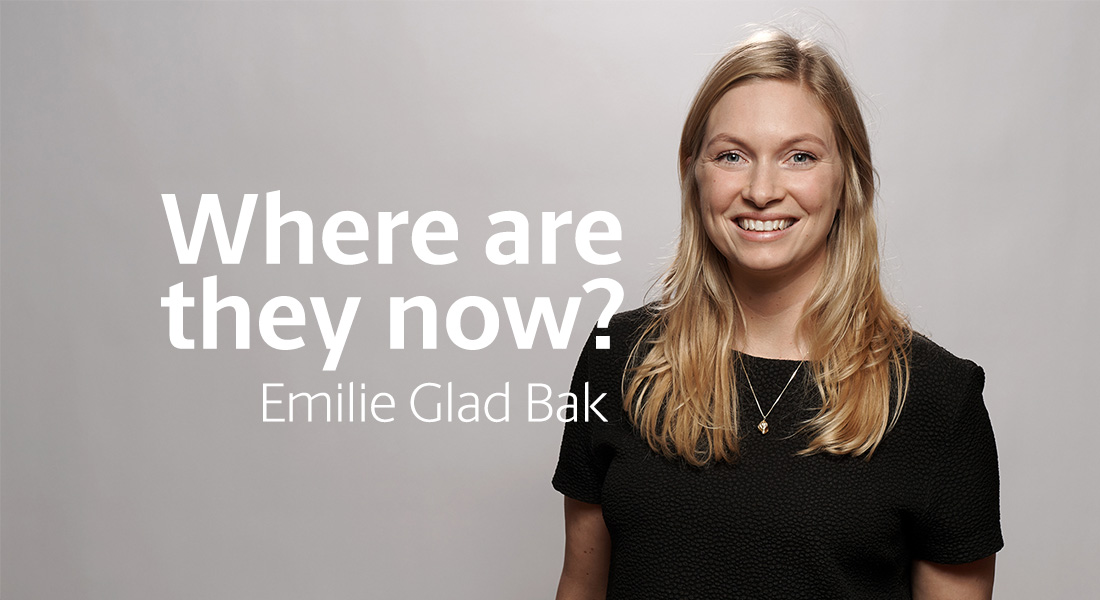"It’s really nice to be able to spread my wings and not just work in the lab."
Emilie Glad Bak joined CBMR as a PhD Student in the Arumugam Group, working on human microbiomes and viromes. After a brief stint as a Postdoc in the Hansen Group, she left in 2022 to join SNIPR Biome to setup their Scientific Affairs division. We had a chat about her journey from academia to industry, and the importance of grasping opportunities as they arise.

How did you get into science in the first place?
I think I was a curious child. My dad is a doctor and an orthopedic surgeon and he always had a lot of publications and reviews at home that I would ask about. My mom is in a completely different field, she’s a French translator, but she worked a lot with different people coming from different cultures. So from both of them I was just curious and trying to grasp new things and understand the universe.
What did you study at university?
I started out wanting to study food science at a continuation school, but then my husband talked me into trying bioengineering or biotech at the Technical University of Denmark (DTU), because he thought it would be a little bit more interesting for me in the long run. I did both my Bachelor and Master projects at Statens Serum Institute, which exposed me to research and helped me to decide to do a PhD.
This is when you joined CBMR, to do a PhD in the Associate Professor Mani Arumugam’s Group?
Yes, I joined the group and started working on projects related to alcoholic and fatty liver disease, which served as the basis for my PhD. But I also developed a strong interest in exploring the microbiome, how it changes in disease and the fact that you can engineer bacteria and microbes to produce compounds. One of the things I was particularly curious about was the virome, which was a very new research field at the time.
What was the biggest sort of outcome of your PhD?
I think that contributing to the virome field because when I got started there were no tools, hardly any papers. We generated quite a lot of data and found a lot of different viral genes. I also made a study on the impact of gastric bypass on the virome, which has hardly been explored.
How did you make the switch to SNIPR Biome?
I already had a relationship with SNIPR Biome, but I was very surprised and happy when they called and offered me the job. But I was also torn as I really liked working as a Postdoc in Torben Hansen’s group and the exciting projects we were setting up. I still touch base with CBMR, especially Mani (Arumugam) once in a while to keep up with the microbiome world, academia and to discuss my career.
Tell me a little about SNIPR Biome and your role there?
We use CRISPR-Cas technology to create drugs that target the microbiome. For example we are developing a type of virus called a phage that attacks multidrug-resistant E coli, while sparing the rest of the microbiome. I am hired in the Scientific Affairs Department, with several different responsibilities. So, it’s not a researcher role, but rather tying everything together, like driving publications, going and presenting at conferences, supporting the bioinformatics teams, and give input to our business development– just lots of different things!
How much of your job is science communication?
I think it’s maybe 50 percent of what I do, which is typical for a biotech company of this size. You need people who can both carry out tests and take the first subjects in this clinical phase one trial, while also going out and looking for some more funding. So there’s a lot to communicate. It’s really nice to be able to spread my wings and not just work in the lab.
What are your personal ambitions for your career?
I’d like to work a little more on bioinformatics, but I also want to learn more about the business side because that is something that I was never really taught anywhere. I know I have a lot to learn here – but I love adding on.
If you were to give some advice to younger PhD students who are looking ahead into their lives and unsure whether to continue in academia or try out industry, what would it be?
I think you should just really grasp the opportunities. Meet people for coffee and not just scientists, but also managers in different departments and industries. Reach out on LinkedIn. When I tried there were lots who just asked me to send through my CV but there were others who were quite interested in talking to me. So you have to take these opportunities that are available.
